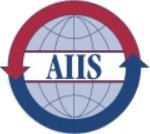Government/Policy

June 23, 2020
AIIS Challenge of Section 232 Reaches End of the Line
Written by Tim Triplett
The U.S. Supreme Court has declined to hear the American Institute for International Steel’s Section 232 case, bringing an end to the trade group’s constitutional challenge of the Trump administration’s national security tariffs on steel and aluminum.
AIIS regrets the court’s decision, said Richard Chriss, president of the institute, which represents foreign producers, metals importers and other members of the supply chain. “From the beginning of our challenge to the presidential tariff-making at the heart of this case, we have been guided by one principle: we speak out when the cause is right and the livelihoods of our members and steel supply chain colleagues are harmed. Even though the Supreme Court did not today agree to accept our petition, our cause is still right.”
His statement continued: “We reinvigorated a robust national conversation about the proper separation of powers in our system of ordered liberty. That conversation continues. Now it is up to Congress to place limits on presidential decision-making.”
Citing Section 232 of the 1962 Trade Expansion Act which allows presidents to impose tariffs based on national security concerns, President Trump imposed 25 percent tariffs on imported steel and 10 percent tariffs on imported aluminum in March 2018, arguing that unfair imports of these essential metals threatened the viability of the domestic industries and thus the nation’s security. AIIS filed suit in June 2018 arguing that the administration’s use of Section 232 was unconstitutional because there should be limits on how much of its constitutional trade authority Congress can delegate to the Executive Branch. As AIIS posited in its case, “If Section 232 does not violate the nondelegation doctrine, is there any legislative authority that cannot be delegated by Congress to the president?” But the high court elected not to tackle that question.
Domestic steelmakers applauded the court’s decision. “We are pleased that the U.S. Supreme Court today rightly affirmed our strong belief, and the previous decisions of the Court of International Trade and Court of Appeals, that the challenge to the Section 232 statute is without merit,” said Thomas Gibson, president and CEO of the American Iron and Steel Institute (AISI). “This lawsuit by steel importers was a weak attempt to mask the fact that surging foreign imports have severely impacted the domestic steel industry and threaten our national and economic security. The decision by the Supreme Court today not to hear further arguments in this case is acknowledgement once again that Congress acted within its constitutional authority when it authorized the president to take action to adjust imports that threaten to impair our national security.”
“The U.S. Supreme Court correctly ruled that the challenge from AIIS had no rational basis on which to succeed,” said Philip Bell, president of the Steel Manufacturers Association (SMA), which represents EAF steel mills in the U.S. “This decision affirms two things. First, unfairly traded steel continues to plague domestic markets. Second, the president has broad constitutional authority to act when import surges threaten our country’s economic prosperity and national security.”
AISI and SMA previously submitted two amicus curiae briefs in the case in support of the constitutionality of the Section 232 statute.







